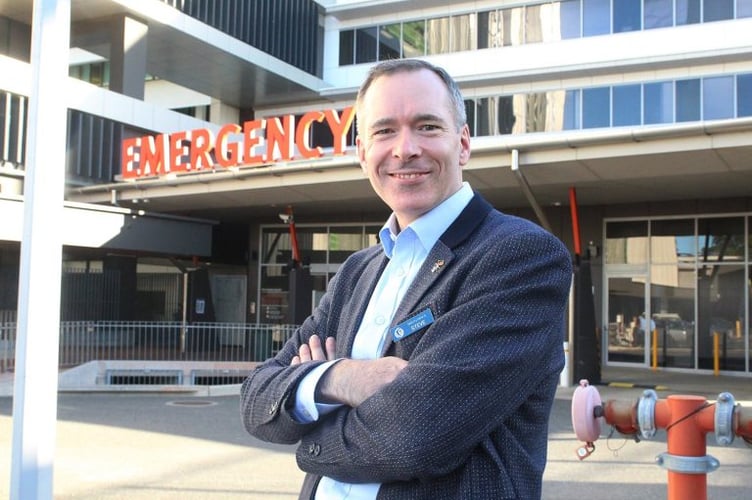A NEW report published by the Care Quality Commission has rated urgent and emergency care services at the Royal Cornwall Hospitals Trust (RCHT) as ‘good’ for being safe, caring and well-led following an assessment.
However, it does highlight areas that do require improvement, especially around ongoing pressures of overcrowding in the emergency department and delays admitting patients to wards.
Chief executive officer, Steve Williamson, said: “The report on our emergency department is fair and captures the challenging circumstances our emergency care teams and hospitals face.
“It’s reassuring to see the rating for safe has improved to good, but we accept that, together with our partners across the health and care system, we have to do more to further improve our ability to provide timely care, even at times of intense pressure, as we are currently seeing.”
RCHT have stressed since the inspection in July of last year, much has been done to improve urgent and emergency care pathways, not least in the expansion and introduction of more community-based services offering alternatives to the emergency department or hospital admission.
These have included same day emergency care units in Bodmin, Camborne-Redruth and Penzance, as well as a new single point of access advice line for GPs, ambulance crews and other health professionals to support them in directing patients to the nearest community services that can meet the individuals’ needs.
At the same time, a report on older people’s care provided on Zennor ward at Treliske Hospital has also been assessed as ‘good’.

Dr Merry Kane, chief medical officer, added: “Like many parts of the country, we are experiencing a challenging start to 2023. Whilst Norovirus and flu have stifled our progress in recent weeks, the work we began in late November to get patients ‘Home for Lunch’ had seen a reduction in ambulance delays and is helping us to contain those at a lower number, despite the current pressure.
“We’re also working to ensure we get patients home as soon as they are medically fit, particularly frail and elderly people, to avoid the hospital acquired deconditioning that can prevent them regaining their mobility and independence.”
RCHT recently launched its ‘Home for Lunch’ initiative, which aims to provide a safer discharge from hospital by getting patients home and settled earlier in the day, and at the same time freeing up beds sooner to admit new patients. This will help avoid long waits and over-crowding and consequently, ambulance queues and handover delays.
Director of nursing, midwifery and allied health professionals, Bernadette George, concluded: “None of us want patients to experience delays in any part of their emergency care pathway and our own staff and are working tirelessly to prevent that happening.
“What does shine through in the CQC’s report is the kindness and compassion of our staff who assessors observed were ‘doing their best to mitigate risk at times of very high occupancy.’ It’s also reassuring to see acknowledgement of the high calibre of leadership across the team and the open and honest culture that is so important to patient care and safety.”


.jpg?width=209&height=140&crop=209:145,smart&quality=75)


Comments
This article has no comments yet. Be the first to leave a comment.